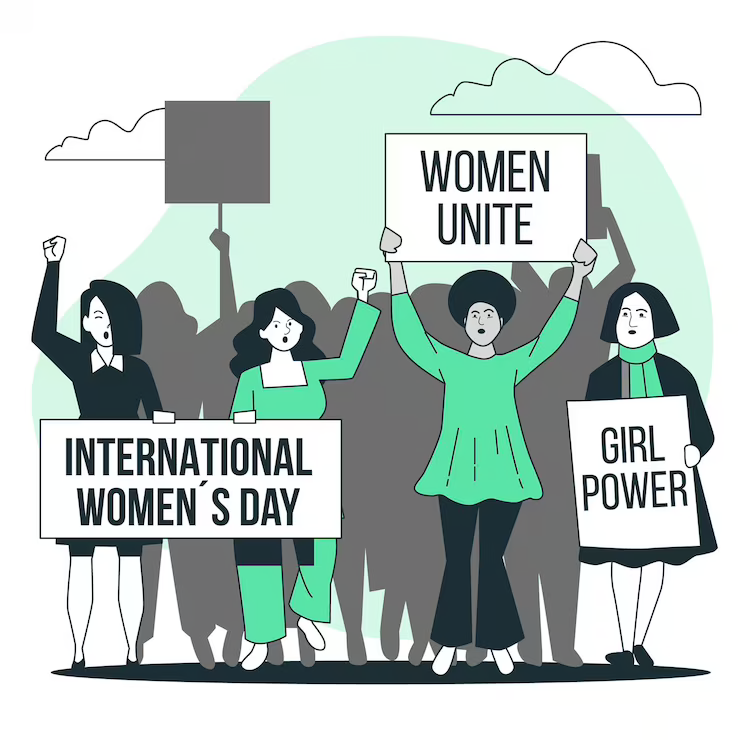The Psychological Dimensions: Exploring the Inner World of High-Value Men

People illustrations by Storyset
On the second of this month, Rollo Tomassi, the author of "The Rational Male," a self-help guidebook for men who have trouble navigating the difficult path of modern dating, tweeted out this:
The quickest path to becoming a high-value man:
— Rollo Tomassi (@RationalMale) May 2, 2023
1. Do not get married
2. Avoid family creation
3. Vasectomy in your 20s
4. Lift consistently
5. Eliminate all sedations
6. Learn Game & Networking
7. Play to your strengths, build wealth
8. Resist easing up on your focus https://t.co/g9JHrxlpcn
This set the whole Red Pill, Manosphere community ablaze as people came to react, respond, and defend the man who is considered the godfather of the Red Pill space.
There were a lot of ideas that were espoused by the man that are not particularly bad, like eliminating all sedations, playing to your strengths, building wealth, and resisting easing up on your focus.
The problem everyone has been firing him about has been the first three statements, especially the third, where he is basically advising men to opt for the most unstable form of birth control there is.
The problem with this advice coming from a man like this is that some young men look up to him and take his advice as law.
Having read his book at a certain point in my life when the nature of women was oblivious to me, I know the influence he has had on me was a net positive. I just don’t know what the lives of those who follow everything he says would be like.
Take this vasectomy advice, for example. Getting a vasectomy in your 20s is the worst advice any man can get, but he handed it out so casually. It triggered a lot of people, and rightly so. A vasectomy, if anything, is a very effective form of PERMANENT birth control.
A High-Value Man

People illustrations by Storyset
What people mean when they say "high value" is usually subjective, and when matters stay subjective, how can they be defined? How can we know what it truly is? I can’t tell you exactly what it is, but I know I can tell you what it is not, and it is not an unhappy man.
The bottom line given by the XM Institute in a post on "The Demographics of Happiness" was that happiness increases with age, education, income, and marriage.
In their post, there are several graphs that illustrate that fewer than 66% of the American population were happy while they were unmarried without children. That number increased to 68% in a similar population with children under 18 years old, and it was highest when their children were over 18.
The happiest demographic seemed to be people who were married with children under the age of 18, and it is no wonder... They are too busy taking care of people who love them and are really unconcerned about what Rollo Tomassi said.
On the flip side, another post discusses the unhappiest demographic, which consists of unmarried 42-year-old women without children in professional jobs. However, a close second in unhappiness are men with similar life circumstances. In fact, they comprise the highest population of people at risk of suicide.
Feminist Psychology

People illustrations by Storyset
The ideas that Rollo Tomassi tweeted about are nothing new, contrary to popular belief. Unhappiness has been spreading since the advent of birth control and the second wave feminist movement.
The feminist movement made significant strides in the inclusion of women in the workplace, bodily autonomy, and the need to challenge traditional views of women and motherhood.
According to the National Library of Medicine, the use of contraceptives relieves the responsibility of pregnancy. This has its positive aspects, but what can be said about the rising rates of depression, divorce, and suicide since the 1960s, which have only recently stabilized at high levels after the invention of contraception?
In "The Feminine Mystique," Betty Friedan described the unfulfilled lives that many housewives experienced at the time but could not articulate. The strange thing is that, while back then it might have been the case that women with no jobs other than being homemakers were unhappy, it is now clear that unmarried women with no children are worse off than those women were.
Feminist psychology, with the advent of birth control, also sought to challenge the strongholds of culture, tradition, and religion when it came to women's mental health. The result has been an ongoing demand for better treatment, sometimes even at the expense of men.
The Red Pill/Manosphere/Men's Rights Movement embraces some of the dogmas of the feminist movement, advising men to opt for permanent birth control.
What do you think about all this?
You can send me a message on WhatsApp at +2348134530293, and we can have a conversation, or you can speak with a licensed therapist.
Conclusion
In conclusion, the controversy surrounding Rollo Tomassi's advice on becoming a high-value man has sparked debates. While some of his suggestions hold merit, his recommendation of getting a vasectomy in one's 20s as a form of birth control has drawn criticism. Defining a high-value man is subjective, but it is clear that personal happiness and fulfillment are important factors.
Research shows that marriage and having children under 18 contribute to greater happiness. On the other hand, unmarried women without children and men in similar circumstances face higher risks of unhappiness and suicide. The advent of birth control and the feminist movement have impacted societal dynamics and mental health.
While contraceptives have provided women with autonomy, rising rates of depression, divorce, and suicide since the 1960s raise questions. The feminist movement aimed to challenge traditional views, but it is essential to consider the well-being of both genders.
The Red Pill, Manosphere, and Men's Rights Movements align with certain feminist principles but advocate for permanent birth control. However, it is important to critically evaluate such advice and consider personal goals, relationships, and overall well-being.

Thanks for your contribution to the STEMsocial community. Feel free to join us on discord to get to know the rest of us!
Please consider delegating to the @stemsocial account (85% of the curation rewards are returned).
You may also include @stemsocial as a beneficiary of the rewards of this post to get a stronger support.
My bigger problem with this is this cultural mindset of 'value'. Everything has become financial. If you're not quantified in terms of value, you're not doing life right, apparently.
A 'high value man' spoken like that paints life like that's the ultimate goal. Feminists have picked up on this, and now women believe the same thing should be expected of them.
To become high value, you have to compromise a lot of your humanity. You have to constantly be focused, constantly be engaged doing side hustles, hitting the gym, using every minute to maximize your 'profitability' as a human like you're constantly fighting to reach the top of some heirarchy.
Women no longer want kids because they've been taught that seeking ambition and success through borderline psychopathic methods (80-hour weeks, ruthless attitude etc), is their only option to 'compete' with men, and should not be 'defeated' by these 'competitors'.
It's maddening. We no longer look inwards and consider what actually makes us happy as individuals, instead seeking profit at all turns.
Then when a woman is in her 40's, a successful and ruthless lawyer with a huge cash sum saved up in her penthouse, she'll look down at her 50 year old brandy alone on her sofa and think 'what now?'.
How very empowering.
In contrast, men are driven to these levels of sociopathic entrepreneurship specifically with the goal of winning a good woman and supporting their kids, not competing against them like an enemy. In their 40's they'll be greatly fulfilled